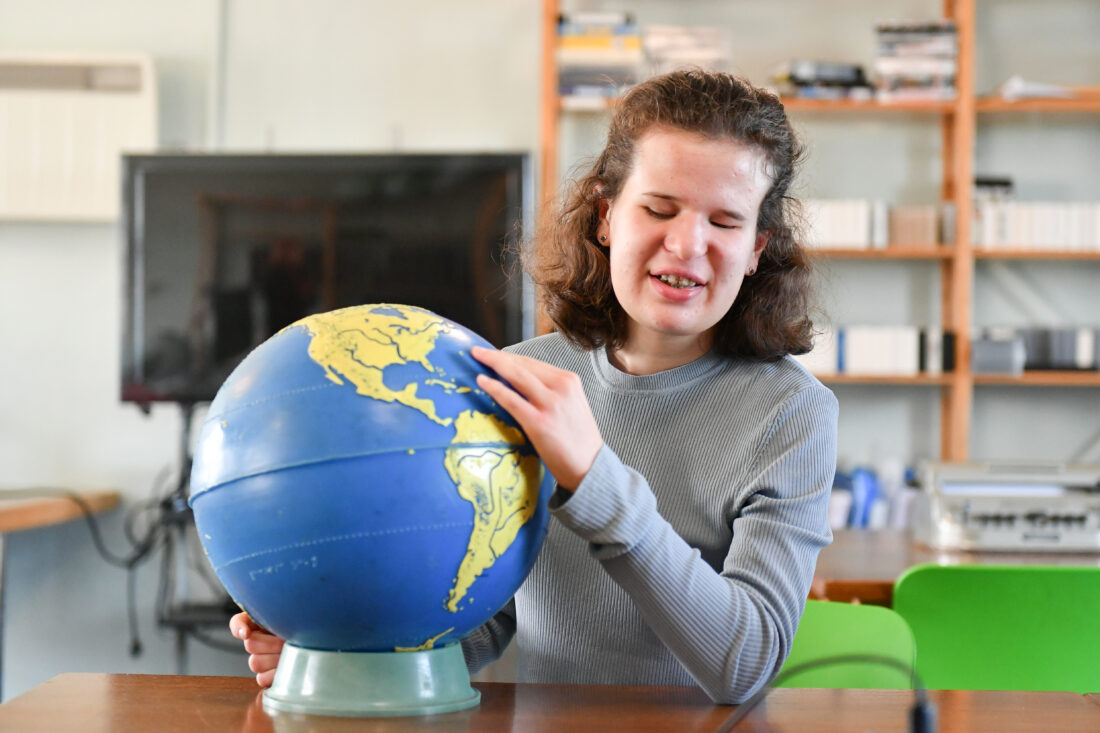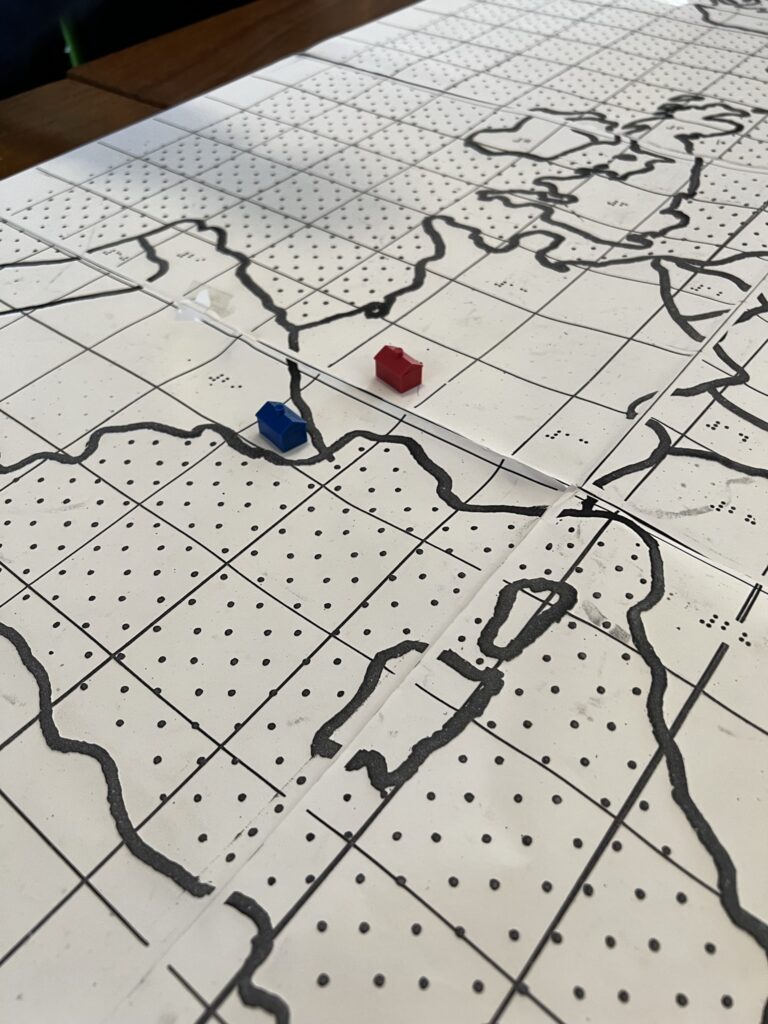The Geography department aims to build on the interest of students in the world, as well as develop understanding of natural events and awareness of how people affect the world around them.
The challenges in meeting the needs of students with a vision impairment include:
- The visual nature of some topics, including the use of maps and diagrams in examination papers
- Being able to access and carry out fieldwork
- Grasping the size and scale of landforms and distances between places
- Lack of the incidental learning acquired through sight.


Examples of adaptations for vision impaired students
- Year 7 students go on regular Humanities trips and students complete fieldwork activities in Years 10 – 13
- Structured work on developing research skills, through the use of resource banks of large print, Braille and electronic materials
- The department has a number of models of landforms to help illustrate their development
- Use of drama activities and the creation of board games that help to develop an understanding of various topics
- Use of kinaesthetic learning methods to develop understanding of landforms.
To read about the Geography Curriculum intent, please click the button below:

Courses
A Level:
Physical Geography – water and carbon cycles, coastal systems, natural hazards and ecosystems.
Human Geography – globalisation, urbanisation, population and resource security.
GCSE:
Physical Geography – natural hazards, living world and physical landscapes of the UK.
Human Geography – urbanisation, resources management and global inequalities.
Head of Department:



